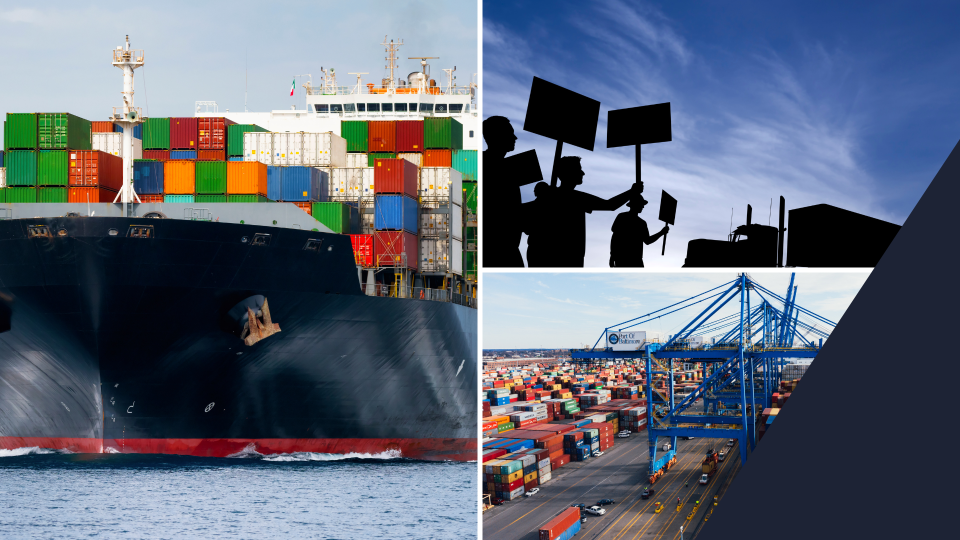
Strike Averted Between ILA and USMX
Tentative six-year agreement reached

January 8, 2025
The International Longshoremen’s Association (ILA) and the United States Maritime Alliance (USMX) have reached a tentative agreement for a six-year deal as of this writing. The agreement eases tensions about a potential strike that would have affected ports along the East and Gulf Coasts and disrupted supply chains significantly.
In the fall, NAMM urged member companies exhibiting at The 2025 NAMM Show to schedule deliveries to Anaheim, CA, before January 15, when the temporary agreement between the ILA and the USMX was set to expire, with long-time partner Freeman announcing it would accept shipments up to 60 days early and hold at their warehouse at no cost to members.
The situation involving the ILA and the USMX highlights significant tensions around automation in the maritime industry. The ILA's reported resistance to semi-automated equipment stemmed from concerns about potential job losses for dockworkers.
Strike Was Temporarily Halted Until January 15
The ILA Strike came to a halt after three days in October, as port employers and union officials agreed to return to the negotiating table with the current contract in place through January 15, 2025.
Earlier that week, many NAMM member companies quickly prepared contingency plans, including scheduling deliveries ahead of the looming strike and booking reservations with West Coast ports and rail operators. In some cases, members had their shipments delivered by air. This activity threatened to increase freight costs and raised the prospect of delays ahead of the crucial holiday shopping season, creating a sense of urgency for companies.
Recap of the Labor Dispute and Strike
More than 45,000 workers at 36 ports from Maine to Texas went on strike Tuesday, Oct. 1, halting cargo shipments along the East Coast and potentially costing the economy billions of dollars each day. The International Longshoremen’s Association had battled for months with shipping companies over a new contract, demanding higher wages and benefits and pushing back against automation at ports.
West Coast port unions reached a deal that averted a potential strike back in June 2024. However, if the East and Gulf Coast ports strike continued beyond a few days, West Coast ports would have become backlogged as companies continue to reroute their shipments.
The White House indicated President Biden would not invoke a 1947 labor law, the Taft-Hartley Act, that gives him the power to force striking workers back to their jobs while contract negotiations continue. But the consequences of the work stoppage on the economy, had it gone on for more than a week, may have forced Democratic presidential nominee Vice President Kamala Harris and President Biden to take action to limit the duration of the strike.